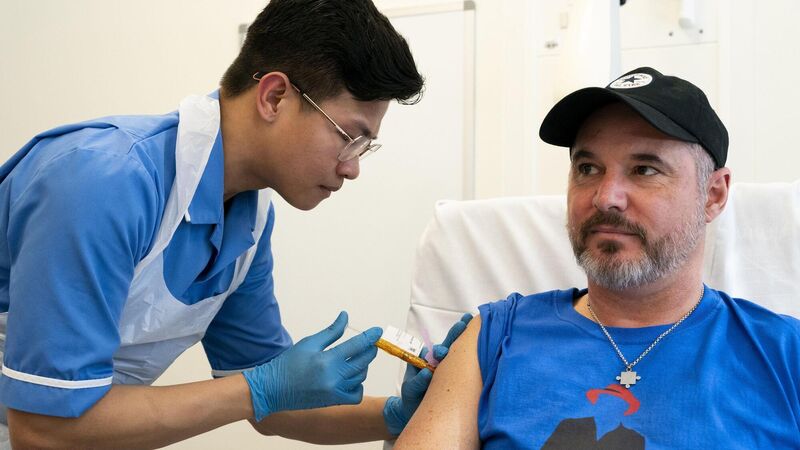‘Real hope’ for cancer cure as personal mRNA vaccine for melanoma trialled

Nurse Christian Medina administers patient Steve Young with his first jab at the University College London Hospital (UCLH) in London, for an international clinical trial testing a novel cancer immunotherapy that may prevent skin cancer from recurring. Picture: PA
Doctors have begun trialling in hundreds of patients the world’s first personalised mRNA cancer vaccine for melanoma, as experts hailed its “gamechanging” potential to permanently cure cancer.
Melanoma affects about 132,000 people a year globally and is the biggest skin cancer killer. Currently, surgery is the main treatment although radiotherapy, medicines and chemotherapy are also sometimes used.













